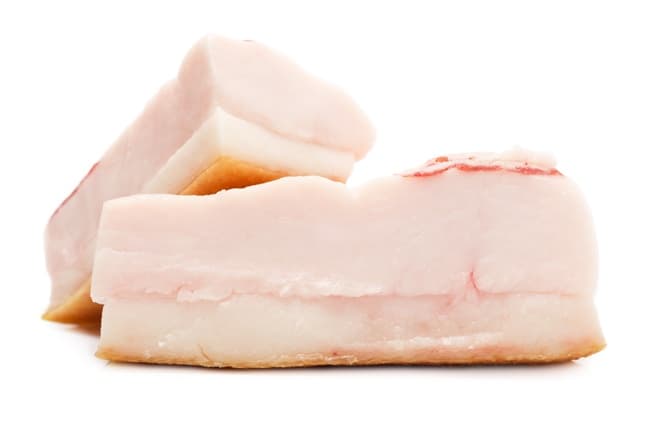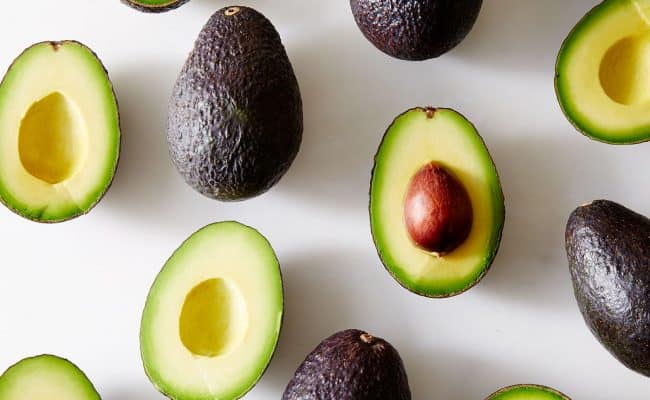
In the past, fat has been a notorious word for overall health and weight regulation. High fat animal based foods such as butter, cream, bacon and red meats were especially associated with increasing risk for cardiovascular disease and being calorically dense foods.
The replacements for these foods, unfortunately, were not healthier. They were often made from trans fats and higher in simple carbohydrates.
Newer research has shed light on knowing that trans fats have the worse impact on heart health and should be limited. Replacing fat with simple carbohydrates, like sugar, is also now recognized as not beneficial.
Recent research reviews have called into question the concern from a main type of animal based fat: saturated fat.
Saturated fats have been associated with increasing heart disease risk, but recent research suggests there is no link.
So, is animal fat good or bad for you?
As always, the answer is not a simple good or bad. All foods have a mix of nutrients, and animal fats have a mix of saturated and unsaturated fats.
The impact animal fat has on health can depend on how much you are eating and what the rest of your diet looks like.
Saturated fat and heart health
Harvard Health (1) suggests some recent reports have muddied the association between saturated fat and heart health.
For example, a meta analysis looking at data from 21 studies concluded there was not sufficient data associating saturated fat with increasing heart disease risk.
This suggests recommendations to limit intake of saturated fat, which is primarily from animal foods, may need to be re-examined.
Current health guidelines still recommend limiting saturated fat intake. More research is ongoing with the effect saturated and animal fats have on heart health.
Unsaturated fat in place of saturated fat
While the role saturated fat has on heart health may be more neutral than previously thought, it doesn’t give the green light to eat as much bacon, butter and steaks as you want.
Replacing some or most saturated fat sources with unsaturated fat sources like olive oil, nuts and avocado is still recommended for heart health.
Replacing saturated fat sources with high fiber carbohydrates, like fruits and vegetables, is also still associated with health benefits.
What are you replacing it with?
What is more clearly understood than before is what you are using to replace the saturated fat is very important.
In the past, saturated fats were considered the most harmful type of fat for heart health. Saturated fat sources like butter were replaced with foods made from hydrogenated plant oils which were a trans fat source.
What we now know is trans fats are more harmful for health than saturated fats. Therefore, replacing butter with margarine made from hydrogenated oils is not recommended.
Replacing foods higher in saturated fats with foods high in sugar and processed carbohydrates is also not recommended.
For example, replacing a regular chocolate chip cookie with a fat free chocolate cookie that is higher in sugar isn’t considered a beneficial replacement.
Instead, making the chocolate chip cookie with plant based oils or even mashed up avocado in place of saturated fats is recommended because you aren’t replacing the missing fat with sugar.
You are switching the primary fat source to unsaturated fat which has still been shown to provide health benefit.
Dairy fat and health
Besides meat, dairy is the other animal based food considered a primary source of saturated fats. Full fat dairy is higher in calories and fat than lower fat dairy.
The primary message for dairy products, like cheese, milk and yogurt, has been to choose low or non-fat choices. However, recent research has challenged this recommendation.
For example, a 2017 review (2) with data from 29 studies found there were only neutral associations (not harmful) between dairy intake and cardiovascular disease and all cause mortality.
A 2013 review also concluded full fat dairy intake was not associated with an increased risk for obesity. In fact, data from this review suggests full fat dairy, in a normal, balanced diet, was inversely associated with obesity.
How much are you eating?
Even with the light of new research and animal fats, this doesn’t give the go ahead to eat as much meat, butter and dairy as you want.
It’s important to note that these foods should still be eaten in moderation and part of a healthy, balanced diet. Eating a diet rich in fruits, vegetables, whole grains and legumes is recommended.
A 2013 study (3) with over 4,500 men with non-metastic prostate cancer concluded replacing carbohydrates and animal fats with plant fats may reduce all cause mortality risk.
This suggests eating saturated fat as a small part of a balanced diet, not a primary component, is still recommended for overall health.
Animal fats can fit into a healthy diet as long as they are a smaller component and the diet is nutrient dense.
Replacing animal fat with vegetable based fats
Saturated fats, which are primarily found in animal foods, may be more neutral than previously thought. However, eating a diet mainly with unsaturated fats is still recommended for overall health.
What you replace the saturated fat with is an important consideration for health. For example, replacing foods high in saturated fat for foods high in sugar is not advantageous.
Replacing saturated fats with trans fat (hydrogenated oils) is also not advantageous.
Replacing saturated fats with unsaturated fats is considered advantageous.
For example, using olive oil as a cooking medium instead of butter can increase the unsaturated fat and lower saturated fat content of a meal.
The Institute of Medicine and other health agencies suggest replacing saturated fats with unsaturated fats, like plant oils and nuts, as much as possible.










